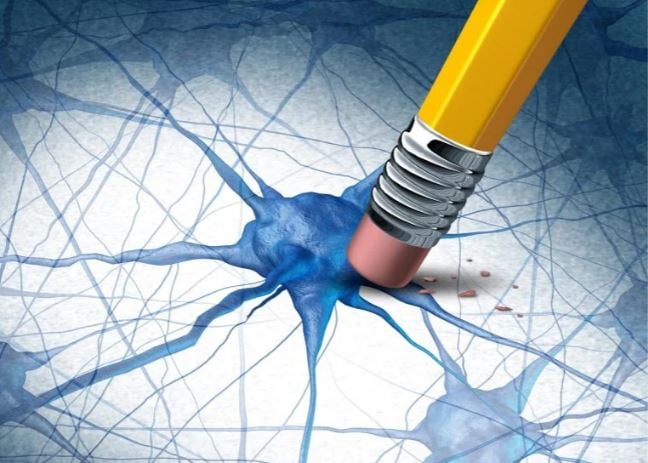The study was published in the journal GeroScience, in which the authors showed that two natural compounds including nicotinamide (a form of vitamin B3) and epigallocatechin gallate (EGCG - an antioxidant found in green tea) help restore guanosine triphosphate (GTP), an important molecule that promotes energy production in nerve cells.
Reversing neuronal aging
In experiments on nerve cells, the combination of the two compounds not only reversed age-related cell decline, but also enhanced the ability to remove amyloid beta protein clumps — a hallmark of Alzheimer's disease.

Researchers at UC Irvine have discovered that two natural compounds can rejuvenate aging brain cells by restoring a key energy molecule, clearing away protein buildup linked to Alzheimer's disease and reducing cellular stress. Source: Stock.
“As people age, the brain loses energy levels in neurons, limiting their ability to clear out unwanted proteins and damaged components,” said Gregory Brewer, lead author of the study and adjunct professor of biomedical engineering at UC Irvine. “We found that restoring energy helps neurons regain this important cleanup function.”
To test this, the team used a genetically encoded fluorescent sensor called GEVAL to monitor GTP levels in neurons from aging Alzheimer’s model mice. The results showed that free GTP levels decrease with age, especially in mitochondria—the “powerhouses” of the cell—leading to a decline in autophagy, which plays a role in removing damaged components in the cell.
Effective in just 24 hours
When aged neurons were treated with nicotinamide and EGCG for 24 hours, GTP levels were restored to levels typically seen in young cells. This led to multiple benefits: improved energy metabolism; activation of key GTPases such as Rab7 and Arl8b involved in cellular transport; and effective removal of beta-amyloid plaques. Oxidative stress, another cause of neurodegeneration, was also reduced.
“This study shows that GTP is an underappreciated source of energy that promotes important brain functions,” said Professor Brewer. “By supplementing the brain’s energy system with compounds that are readily available in dietary supplements, we may open up new avenues for treating age-related cognitive decline and Alzheimer’s disease.”
However, he cautioned that more research is needed to determine the effectiveness of the method. A recent clinical trial involving UC Irvine scientists found that oral nicotinamide did not produce significant results because it is rapidly inactivated in the blood.
Source: https://doanhnghiepvn.vn/cong-nghe/kham-pha-hop-chat-tu-nhien-co-kha-nang-loai-bo-protein-gay-benh-alzheimer/20250819080755848



























![[Photo] Prime Minister Pham Minh Chinh receives Australian Foreign Minister Penny Wong](https://vphoto.vietnam.vn/thumb/1200x675/vietnam/resource/IMAGE/2025/8/20/f5d413a946444bd2be288d6b700afc33)




![[Photo] Politburo works with Standing Committees of Lang Son and Bac Ninh Provincial Party Committees](https://vphoto.vietnam.vn/thumb/1200x675/vietnam/resource/IMAGE/2025/8/20/0666629afb39421d8e1bd8922a0537e6)







































































Comment (0)